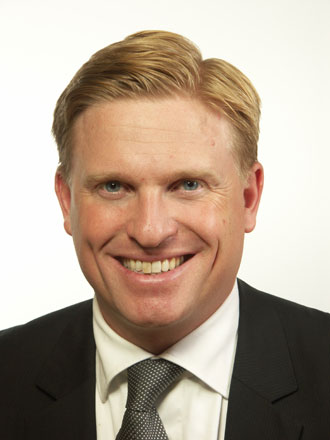Azerbaijan, Baku, Jan. 17 / Trend U.Sadikhova /
The EU can contribute to the advancement of negotiations on the Nagorno-Karabakh conflict and the Eastern Partnership Program is a step on this path, ruling Moderate Party MP and a member of the Swedish Parliamentary Committee on European Affairs Gustav Blix said in an interview today with Trend.
"The EU and Sweden want to play a constructive part in solving the frozen conflict between Armenia and Azerbaijan over Nagorno Karabakh," he said. "I think that European integration is the way forward and the Eastern Partnership Program is a part of that. This program creates a natural framework for reducing tensions and launching the process."
He added that the EU has been successful in solving other conflicts, which has been a great achievement in the European integration project.
"These solutions are pan-European, and laid the basis for respect for international law and international borders, as well as human rights and democracy," Blix said.
A major objective for European security, Blix said, is reducing tensions and improving the integration process in Eastern Partnership Program member countries, of which Sweden served as a co-iniator. All conflicts in the region, in his opinion, should be resolved peacefully.
"All conflicts in the region, including Nagorno Karabakh, have to find a political solution on the basis of respect for international law and international borders, exclusively," he said. "Achieving this, it will be easier to begin the process of economic and market integration and improve living conditions for every nation."
However, Blix doubts that a solution to the conflict will be possible overnight.
"The conflict has continued for over 20 years, and it is naive to believe that solutions can be achieved at one point," he said. "However, Sweden believes that through the integration and empowerment of the six Eastern Partnership Program member countries, we can work establish cooperation and future membership may be one way to solve this problem."
The conflict between the two South Caucasus countries began in 1988 when Armenia made territorial claims against Azerbaijan. Armenian armed forces have occupied 20 percent of Azerbaijan since 1992, including the Nagorno-Karabakh region and 7 surrounding districts.
Azerbaijan and Armenia signed a ceasefire agreement in 1994. The co-chairs of the OSCE Minsk Group - Russia, France, and the U.S. - are currently holding the peace negotiations.
Armenia has not yet implemented the U.N. Security Council's four resolutions on the liberation of the Nagorno-Karabakh and the surrounding regions.
Blix believes other regional countries such as Turkey must be involved in Nagorno-Karabakh conflict besides the U.S. and Russia.
The Eastern Partnership Program is a Polish-Swedish initiative under the EU Neighborhood Policy aimed at improving EU relations with six former Soviet countries Azerbaijan, Georgia, Moldova, Belarus, Ukraine and Armenia. The program envisages the allocation of 600 million euro to these countries until 2013 to strengthen state institutions, control borders and help small companies. The program's constituent summit was held in Prague on May 7, 2009.
The next summit will be held in Budapest in May 2010 and chaired by Hungary.
Important steps have been taken as part of the Eastern Partnership Program to increase contacts and partnership between the six countries, including, of course, Azerbaijan, he said, adding that, however, there are still some problems to be solved.
"Each of the six countries has its own individual problems, and we are discussing how we should continue to move forward," he said. "I believe that countries have good prospects for developing relations in the framework of the Eastern Partnership Program and the EU."






